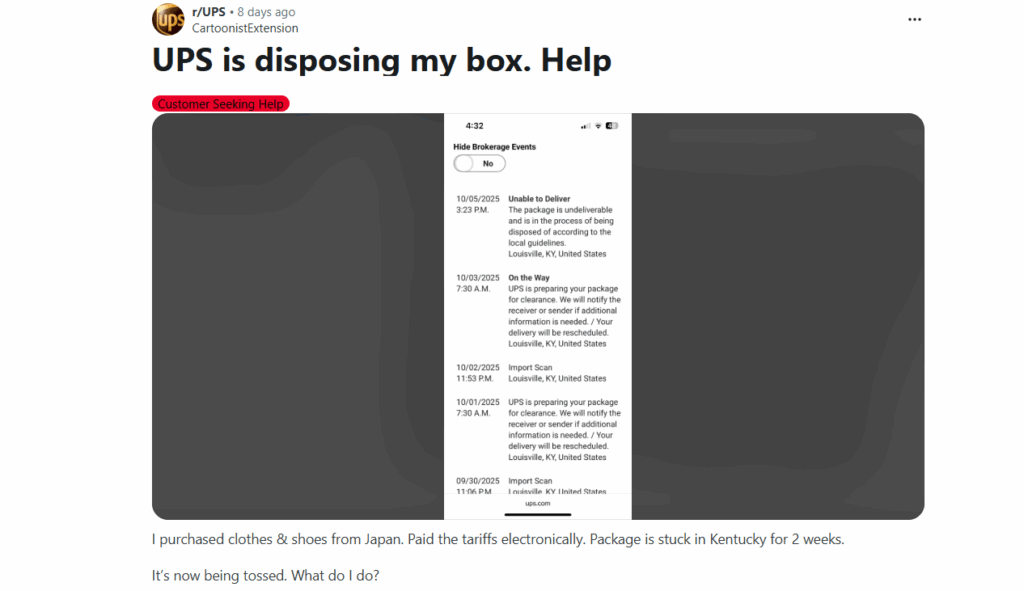When the U.S. ended the de minimis loophole in August, many assumed that there would be far-reaching ramifications for shipping logistics and U.S. businesses. It seems that signs of such pain points are making themselves clear ahead of the holiday season.
- The de minimis exemption allowed international packages valued under $800 to enter the U.S. without having to pay tariffs based on the value of the package and its country of origin.
According to NBC News, thousands of international packages with U.S. destinations have been held up by the new customs requirements, resulting in “maximum chaos” as the UPS tries to clear the packages at a rate faster than they are coming in.
- According to reports, the backlogs have gotten so severe that UPS has resorted to “disposing” of some shipments rather than facilitating their arrival to intended destinations.
Customers have gone to Reddit to share their experiences of valuable or sentimental items not reaching them due to these conditions.

Promo Perspective
Ending the exemption was expected to have a significant impact on the promotional products industry, according to Alok Bhat, market economist, research and public affairs lead at PPAI.
“The industry relies on global supply chains to deliver affordable, customized products across business, education, healthcare and community initiatives,” Bhat says. “Without de minimis, small, low-value shipments face additional fees, customs delays and more paperwork.

Alok Bhat
Market Economist and Research & Public Affairs Lead, PPAI
“Disruptions are already emerging. That means orders many businesses depend on may be delayed or may not arrive at all. For companies of every size, these changes could raise costs, complicate timelines and limit access to branded products. For small businesses in particular, it may mean the difference between taking part in programs or being priced out.”
- This also puts nearby international firms, such as those in Canada, at a new disadvantage if they had been used to sending samples to clients in the U.S. without having to pay tariffs, which is no longer possible.
- This comes on the heels of European nations and India suspending the shipment of most packages to the United States due to confusion over new import duties.


